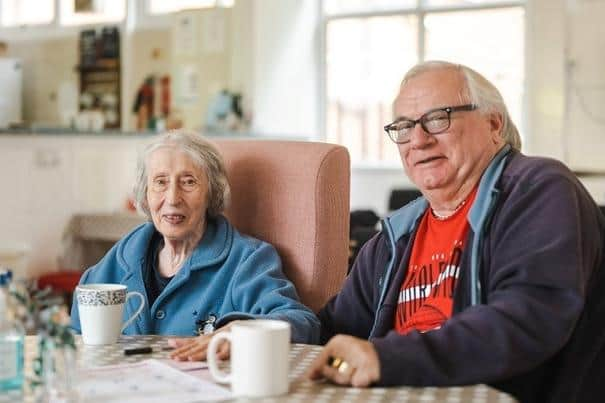One in four unpaid carers in NI suffering ‘shocking levels of poor health’ – survey
and live on Freeview channel 276
In a survey of over 1,600 unpaid carers, more than one in four (27%) described their mental health as bad or very bad, while 20% said the same about their physical health. Support to help look after themselves is out of reach for many carers, as over a third (40%) hadn’t had a break from caring during the last year and 23% said the support services in their area did not meet their needs.
The survey also showed that carers’ health is worsening due to the cost of living crisis with nearly 70% saying that rising bills were having a negative impact on them.
Advertisement
Hide AdAdvertisement
Hide AdDavid Humphreys is retired and lives in Carnmoney. He provides unpaid care for his wife, who is living with Multiple Sclerosis (MS). He said: “I receive absolutely no support services to help me look after her. I’ve never been offered a care package and on the occasions that I’ve asked for help, nothing has changed. It’s the usual story of staff shortages and lack of budget.


“I’m left to deal with everything at the same time as managing my own health issues. I have arthritis, diabetes and mobility problems in one of my legs, so sometimes I need to use a walking stick to get around. Caring takes its toll, but what else can I do but just plough on? My wife needs care and there is no one else to do it.”
Carers NI is calling for a legal right to social care support for all unpaid carers, the appointment of an independent carers’ champion to advocate for carers to government, and wider transformation of the health system.
Craig Harrison, policy and public affairs manager for Carers NI, said: "We need the Stormont institutions restored so that long-promised reform of the social care system can finally be delivered and our unpaid carers given the support they so desperately need. This carer health emergency will only get worse and worse if we fail to act.”
Full-time
Advertisement
Hide AdAdvertisement
Hide AdCaroline Shanks lives in Greenisland. She provides care for her mother, who is living with Alzheimer’s disease, while working full-time. She said: “There isn’t really anyone else to help look after mum, so everything falls onto me. The opportunity to get a break from caring is really rare and this past year has been especially difficult. Juggling full-time work while caring for mum can be a nightmare. Sometimes I was working all day, going to mum’s house afterwards and then not getting home until late in the evening.
“On a good day there is nothing that I can’t deal with, but on the worst days I have just wanted to run away, because it all feels like too much to deal with. I broke down on the phone to the social worker because I just felt so overwhelmed and everything had welled up inside of me. The only way I can describe the situation is that I go to bed thinking about caring for mum and I wake up thinking about it. The impact that can have on your mental health is massive.”
